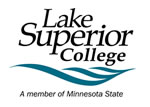
Procedure 2.3.1 - Student Involvement in Decision Making
Part 1: Introduction
Lake Superior College values student participation and involvement. Student representatives are a part of decision making and serve on college committees where appropriate. Some issues require ongoing student participation, and other issues require student review or consultation.
Subpart A: Campus Meetings
To provide a mechanism for student discussions, consultation and reviews, the College President shall meet regularly with student representatives appointed by the student senate. The College President shall:
- Meet with the campus student association at least twice per semester to discuss issues of mutual concern,
- Inform the campus student association of the subject of scheduled reviews or consultations at least a week in advance except under very unusual circumstances as reported to the president,
- Structure the consultation process to provide adequate time for students to be able to discuss and consider an issue prior to any proposed recommendation.
Part 2: Representation
Students shall be given the opportunity to serve as full members of appropriate college committees through the entire process of that work group. (Examples: such as but not limited to search committees for certain employees [e.g., senior administrators, student affairs professionals], policy development committees, strategic planning committees, food service vendor selection committees, etc.). Representation will be solicited through the Student Senate.
Part 3: Consultation and Review
Subpart A: Consultation
Consultation means that the administration seeks an opinion from the campus student association and considers that information in the decision-making process. Consultation includes presentation of materials, discussion, and an opportunity for students to ask questions. The consultation process is used to gather student input and/or recommendations and can provide a forum for developing agreements between the administration and the student association. Prior to the meeting, the student association is notified of the agenda items. Necessary background materials are provided in advance of the meeting except under very unusual circumstances as reported to the president. If resolution or agreement is proposed, the student association shall have a reasonable amount of time to discuss and consider the issue internally. (Examples of issues requiring consultation: such but not limited to consultation on a change in tuition or fees: agreement to establish an athletic fee, presidential exemption of fees, student life/activity fees, health fees, facility fee, parking fee, student wage rates, technology fee or non-curricular campus proposals that have significant impact on students).
When a Lake Superior College proposal requiring consultation is to be considered by the Board of Trustees, the campus student association shall submit a letter stating the level of consultation and any position taken by the association on the issue. The letter shall be submitted to the Office of the Chancellor by the College President prior to the initial consideration of the proposal, except under very unusual circumstances as reported to the Chancellor and the campus student association.
Subpart B: Review
A review is an information report by the administration and includes an opportunity for students to ask questions on the information presented. The review process requires a meeting to inform the student association of an issue of potential concern to the students. Prior to the meeting, the student association is notified of the agenda items. (Examples: such as but not limited to the review of a campus bonding request that is being formulated, statute changes, personal property/service charges with substantial student impact (e.g. laptops), campus budget information, late fees, drop fees, experimental learning assessment fees, special event charges, residential learning community fee, remodeling and construction projects, and substantial changes to academic programs).
History
Date Implemented: February 2006
Date of Review/Revisions: May 17, 2021
President's Signature Date: May 17, 2021

Related Policies/Procedures
Chapter 2: Students
- 2.0 - Confidentiality of Student Records
- 2.1 - Campus Student Associations
- 2.2 - State Residency Requirements
- 2.3 - Student Involvement in Decision Making
- 2.6 - Intercollegiate Athletics - Minnesota State Board Policies - EXTERNAL
- 2.8 - Student Life
- 2.8.1 - Student Life
- 2.8.2 - Student Stipends - RESCINDED
- 2.9 - Academic Standing & Financial Aid Satisfactory Academic Progress

